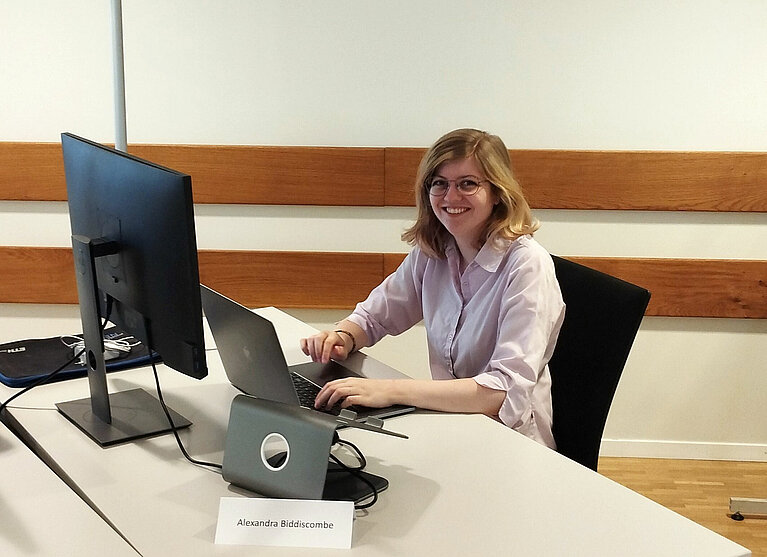August 30, 2023 - by CSCS
Could you shortly introduce yourself?
My name is Alexandra, and I am a student of SUPSI. I will be starting my studies for a bachelor’s degree in data science and artificial intelligence immediately after this internship at CSCS.
What fascinates you in the world of supercomputing?
It is almost incomprehensible to me the sheer amount of data that can be handled by a supercomputer. The ability it has to intake data from the real world and manipulate it into a simulation or make predictions through machine learning is mind-blowing. I am also interested to see how these supercomputers will continue to evolve and how problems to do with intensive data use, like artificial intelligence, will be faced.
How did you first hear about CSCS?
I first heard about CSCS through family, and later I had the opportunity to tour the building and view the supercomputers myself. During the months that followed, it was finally suggested as a possible place to apply for an internship by members of the school board.
Why did you want to intern at CSCS?
To access the courses at SUPSI, a certain amount of work experience is required, as it is a professional university. I wanted to intern at CSCS specifically, due to the unique working environment this would offer as opposed to other IT companies, since not only does CSCS dispose of mountains of computing power (literally, the supercomputers are named after mountains), but it also aims at research, innovation, and practical applications that help many people all over Switzerland, such as through the MeteoSwiss weather prediction.
What projects have you worked on so far during your internship at CSCS?
My project has been to write a report on various machine learning (ML)-related libraries, platforms, and general pieces of software that could be used by the supercomputing centre in a current project. There are hundreds of different options, so to effectively choose the right tool for the job, an overview of at least a selection of them is necessary. I have slightly altered the original report layout to fit what I have learned during these four months, by adding a general introduction to ML before reviewing the various tools, so that it can be helpful to people new to the field.
How would you describe a regular day as an intern at CSCS?
My typical day at the office consists of working from about 9:00 to 18:00, starting with reading on the ML environment and helpful tools; then, chatting over lunch and asking opinions from experienced coworkers before writing my report; and finally, communicating a daily log to those responsible for my internship. The goals have mostly followed a monthly timeline, so daily changes have been minimal.
What will you take home from this experience?
The experience of working at CSCS has granted me a great deal of new knowledge and insights. I have programmed in a new language, created my first ML model, learned how to evaluate software, and been been surrounded by different people with expertise in many interesting fields. I am grateful for this formative internship — I just hope my expectations for future working environments aren’t set too high now.
